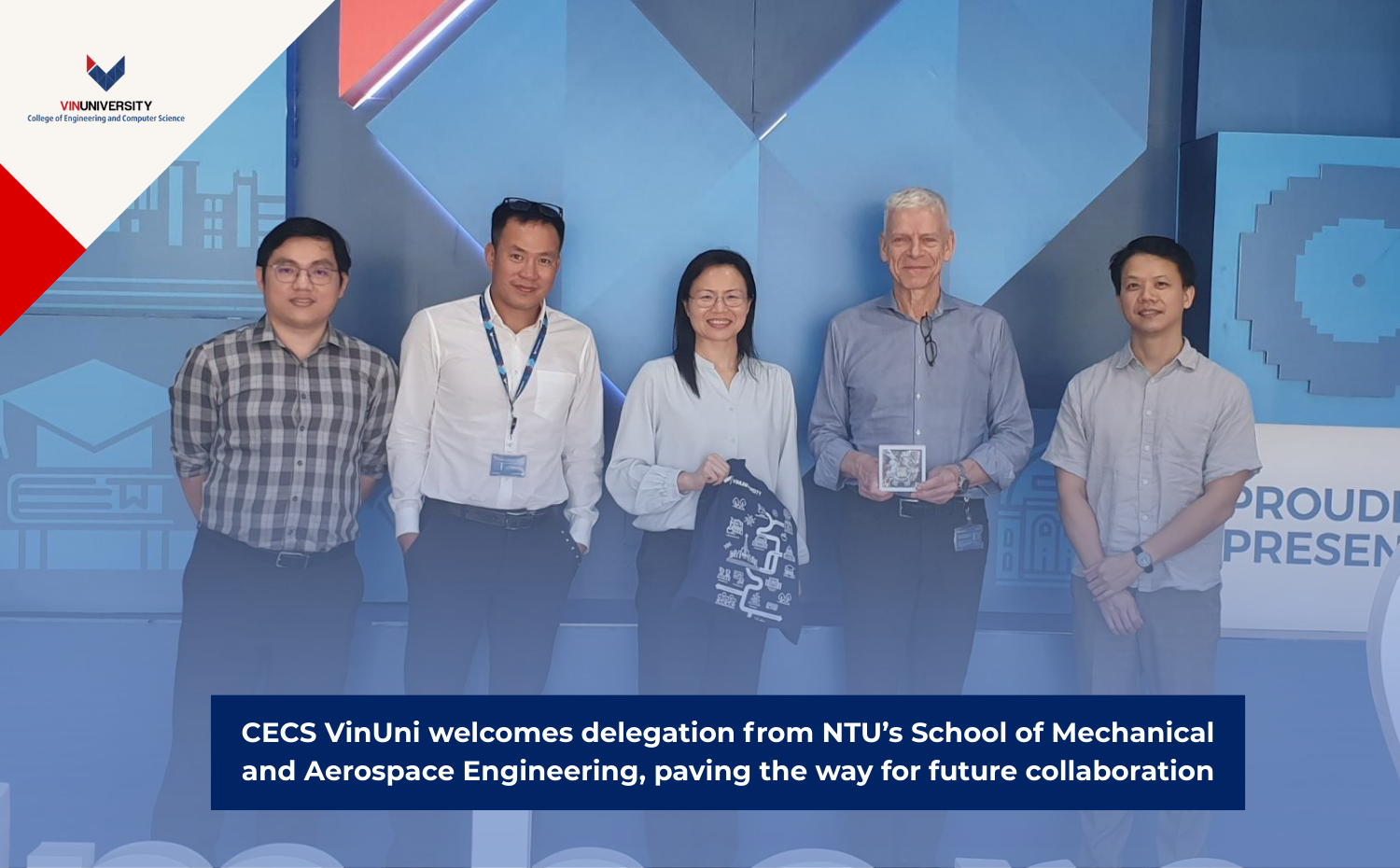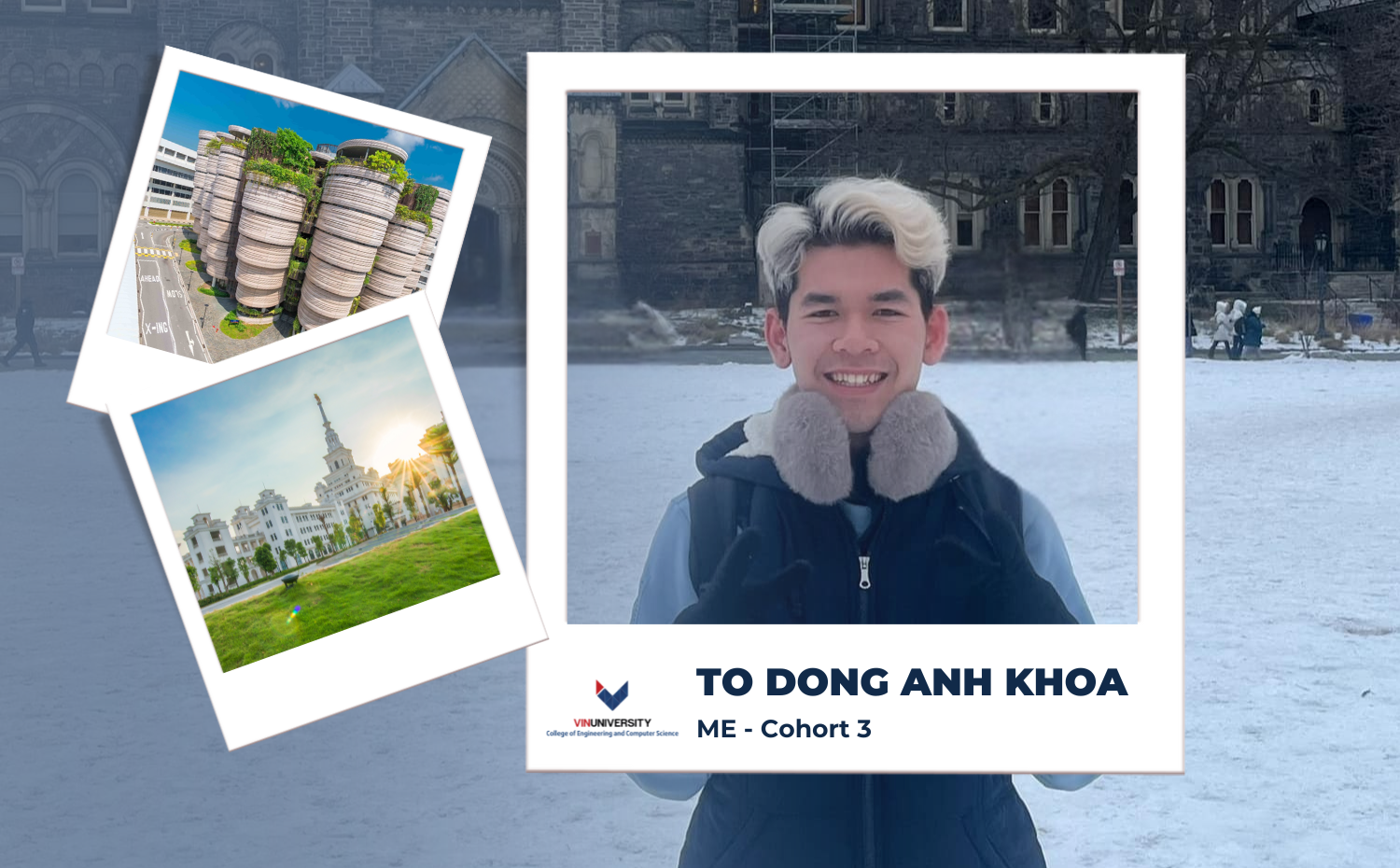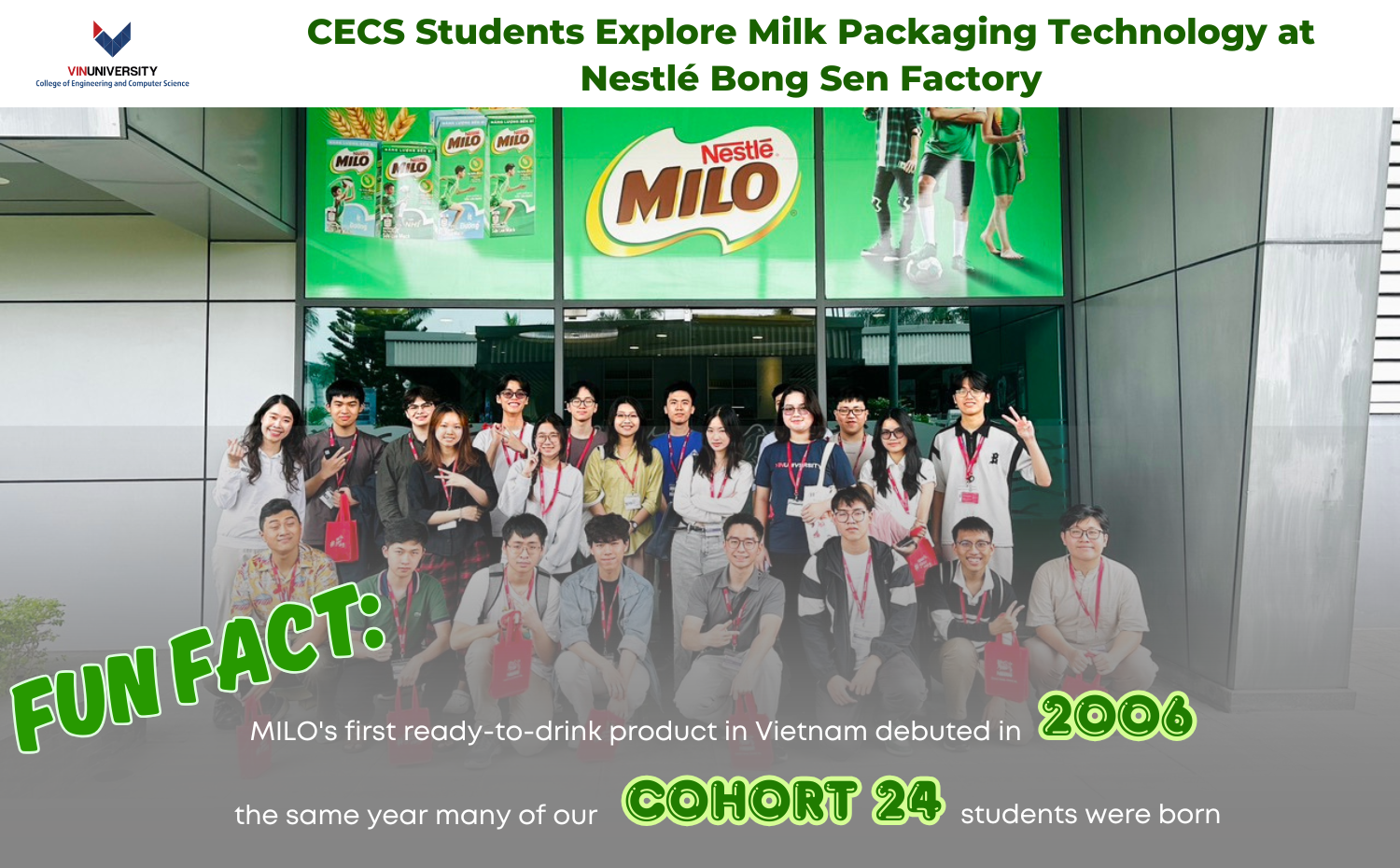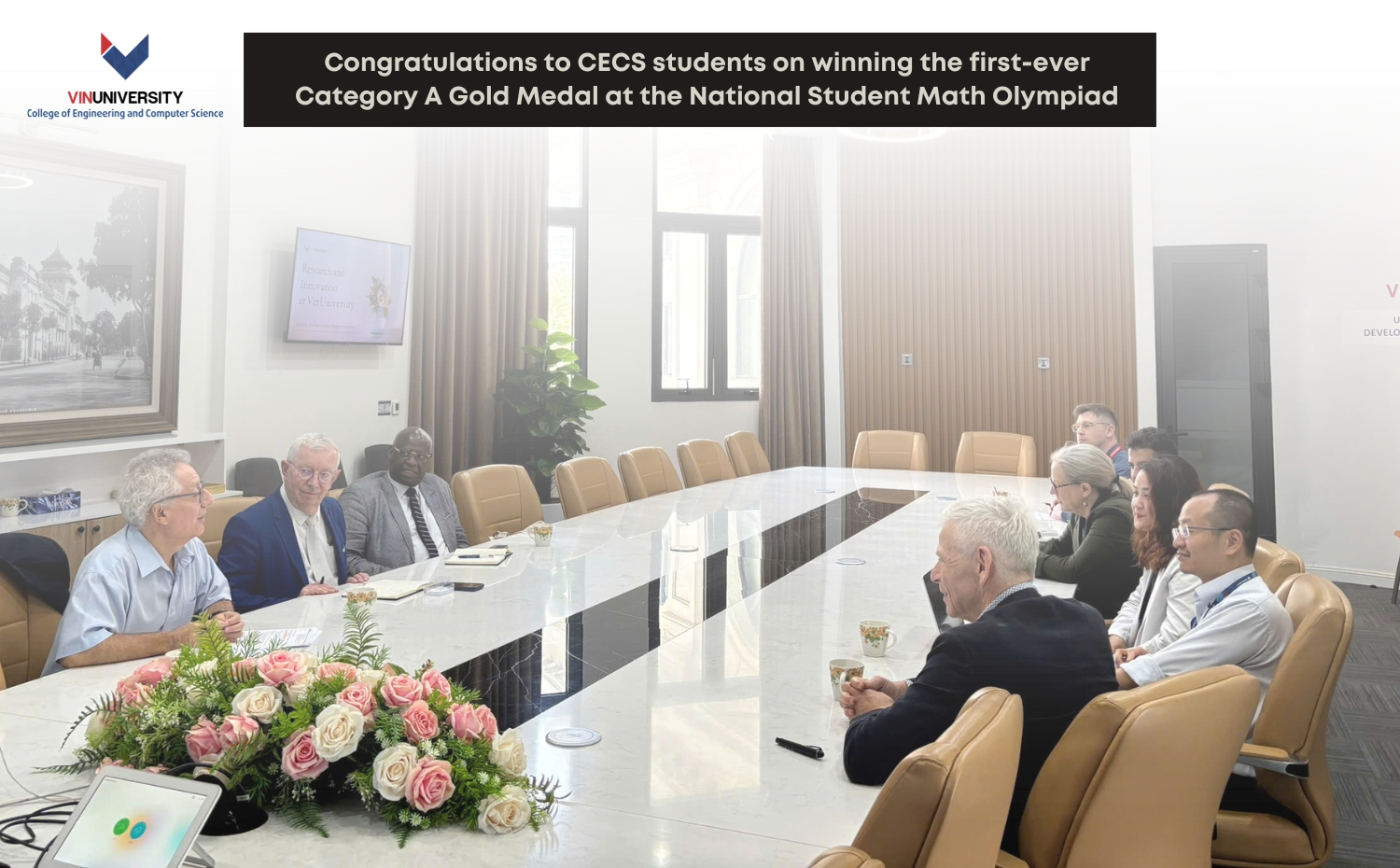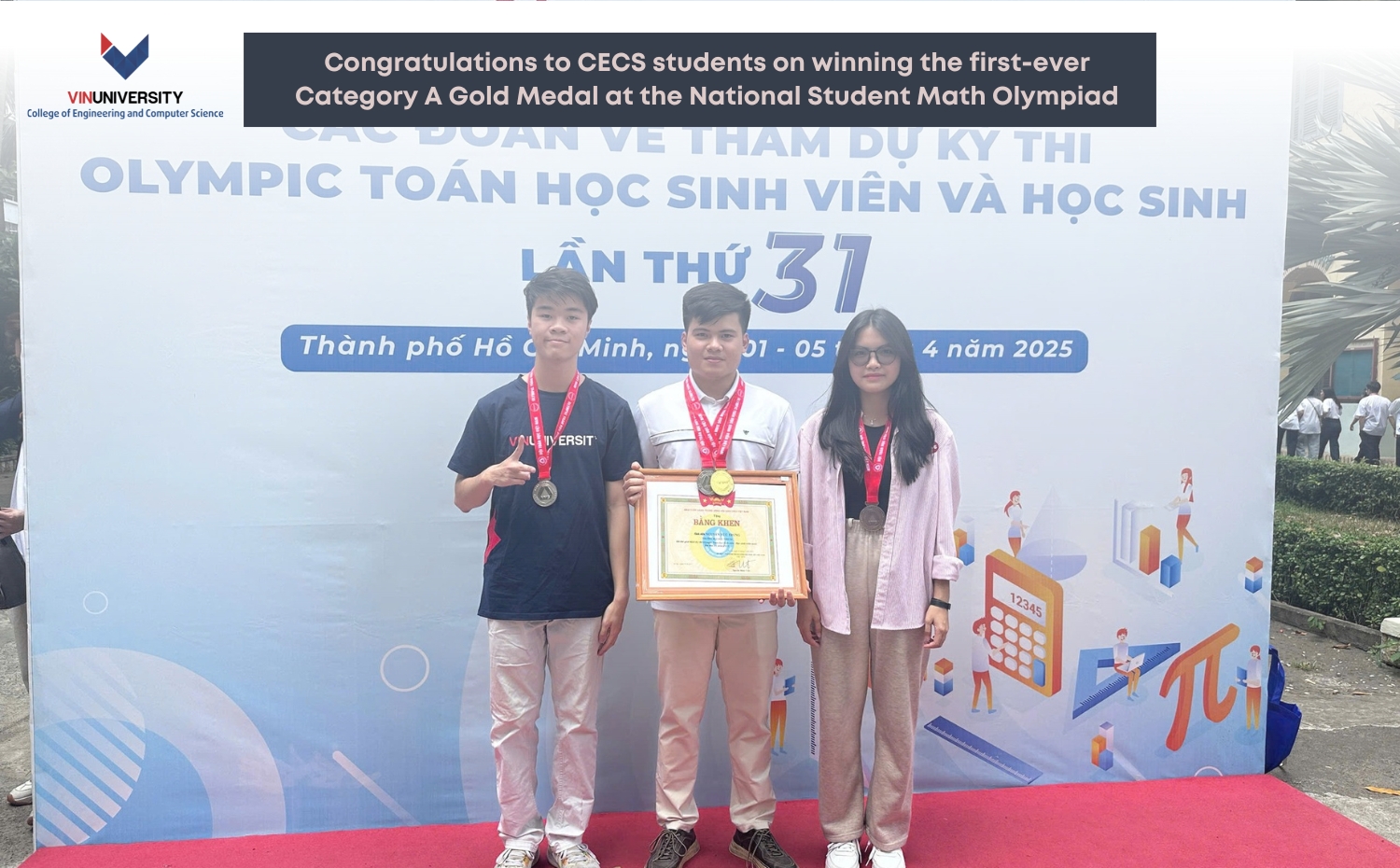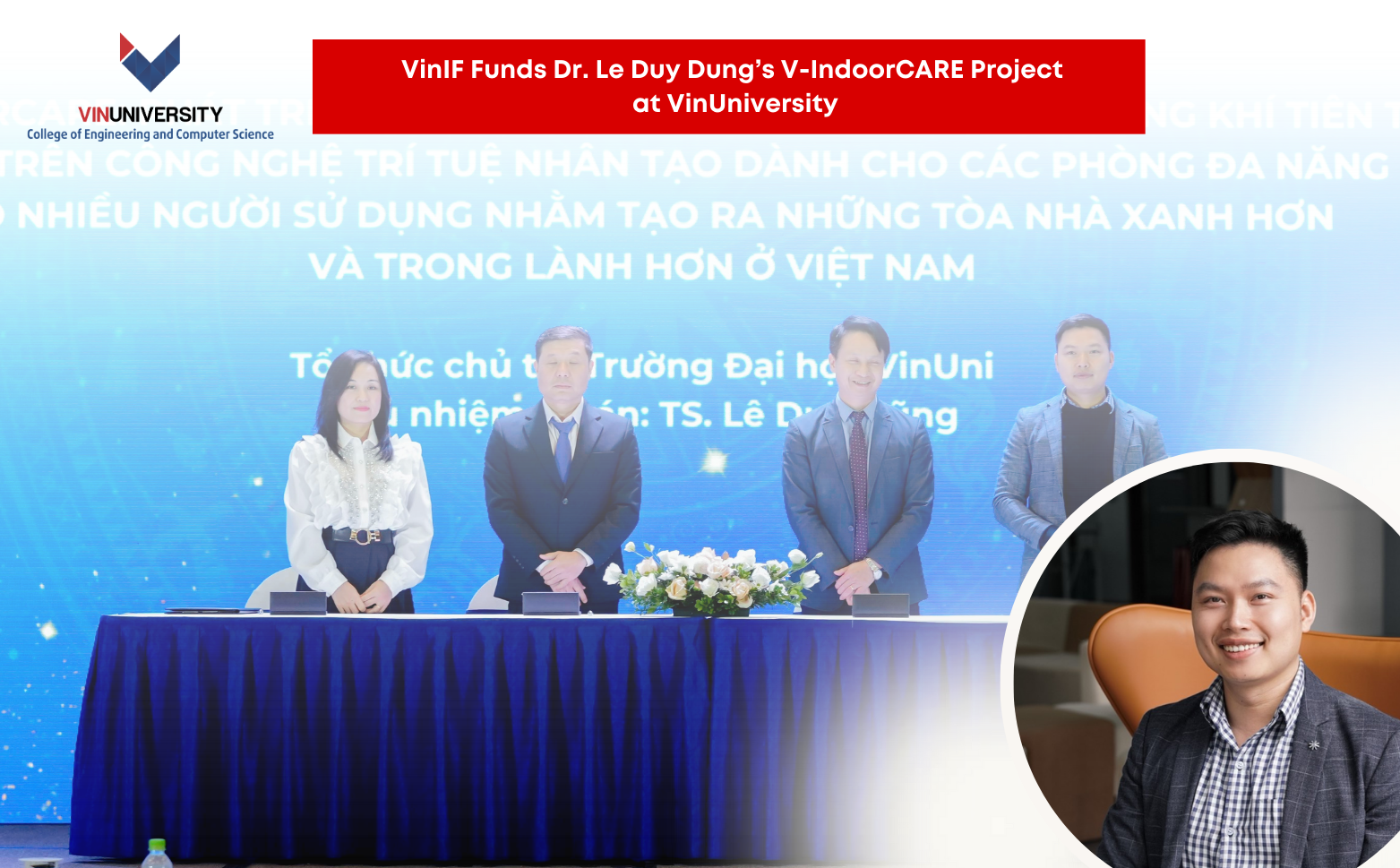“Our VinUniversity student candidates deserve the best in university education.”
Play it Smart and Think Differently
Meet Dr. Charalabos (Haris) Doumanidis, the Dean of the College of Engineering and Computer Science at VinUniversity.
A seasoned engineer, a distinguished and influential researcher, and an experienced academic leader, Dr. Doumanidis, comes to VinUniversity from his most recent post as the Vice Provost for Research at Nazarbayev University in Kazakhstan. Originally from Greece, Dr. Doumanidis received his undergraduate degree from the Aristotelian University of Thessaloniki, his MS from Northwestern University, and a PhD in Mechanical Engineering from the Massachusetts Institute of Technology (MIT).
He is a recipient of the Marie Curie Chair of Excellence and the Excellence Team award by the European Commission, the ASME Blackall Award, the Presidential Faculty Fellow Award by the White House (former President W. J. Clinton), the NSF Young Investigator and Research Initiation Awards, and the Honda Initiation Grant among many others.
In addition to being a highly regarded researcher, Dr. Doumanidis has served in many senior leadership roles, such as the founding Director of the Nanomanufacturing Program at the National Science Foundation (NSF) in the USA, and as the National Contact Point of the European Commission for the Research Promotion Foundation.
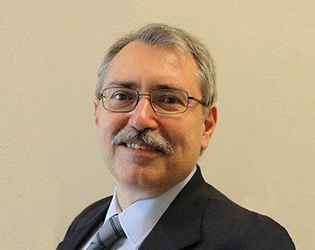
Dean Charalabos (Haris) Doumanidis
What brought you to VinUni? What are you looking forward to?
I was drawn by the opportunity to establish regional leadership in university education that is recognized globally and that will impact the nation of Vietnam and the world community beneficially through its outreach, techno-preneurship, life-long education, and philanthropy initiatives. My friendship with Dr. Hiep Tran, my former PhD student at Tufts, was an added inspiration for my decision. As the Dean of CECS and “pater familias” of our academic family, I am looking forward to helping our people realize their dreams that brought them to VinUni, and share in their happiness.
What is your advice to students who are interested in studying engineering or computer science? Why should students choose VinUni CECS?
Let me begin by saying that the field of engineering offers the most creative, honest, and prosperous careers with optimal compensation, professional development, and personal satisfaction. At VinUni, students will be exposed to a world-class faculty and staff, our curriculum with DNA from Cornell, our Superlab and ultra-modern labs, internships and exchanges with the US, Australia, France, Korea, Singapore, etc., and prospects for a career at VinFast, VinSmart, VinHomes and our Research Institutes. The personalized education we offer in CECS ensures that students are at the heart of all we do.
What is the current trend in choice of major in the field of engineering? How will VinUni respond to the trend?
There is an increasing interest in computer science as an undergraduate field of study, and a downward trend in enrollment in the other more traditional engineering disciplines, such as Mechanical, Electrical and Chemical Engineering. To mitigate this effect, CECS is planning on-campus major orientation events that will include participants from VinGroup (VinFast, VinSmart, VinHomes, VinPearl Air, etc), hosting tours of our EE and ME laboratories, and soliciting student scholarships from the VinGroup in targeted areas of interest.
What kind of research will the faculty and students undertake at VinUni?
VinUni CECS has a universal research vision in Digital Humanity: creating technology and intelligence to make our lives safer, sustainable and humane. Our students will have plentiful, quality opportunities for research exposures through their internships, coop program, exchanges, senior design projects and honors thesis in working with our research institutes, the VinGroup companies, and our international partners, with world-renowned researchers and facilities. An example of this research is to explore chaos in nature in order to engineer useful technology products for health sciences and services for managing businesses.
How do you see engineers responding to the Covid-19 pandemic?
This is an opportunity for engineers of all kinds to develop technology that will contribute to the aid of humanity in the face of this pandemic. Examples of such technology consist of wireless telemedicine and bioinformatics-based diagnostics that remotely track patient symptoms, identify proximity of infected population to the patient and those at risk or at the inception of symptoms. This kind of technology is crucial in Vietnam where many people in the countryside do not have access to a clinical facility for testing and treatment. In addition, some engineers are also busy in developing biomedical microfluidic sensors for testing the virus, or equipment for the synthesis of medications and vaccines.
Do you have any further advice for today’s students?
My advice to students is to listen to history, your parents, and your professors rather than follow the crowd in choosing a topic of study. If you follow the crowd, you will have to compete with the very same crowd for a given number of jobs when you graduate. So, play it smart and think differently, and do everything possible in order to study at VinUni, where you will thrive as you become an agent of change for Vietnam and the world.

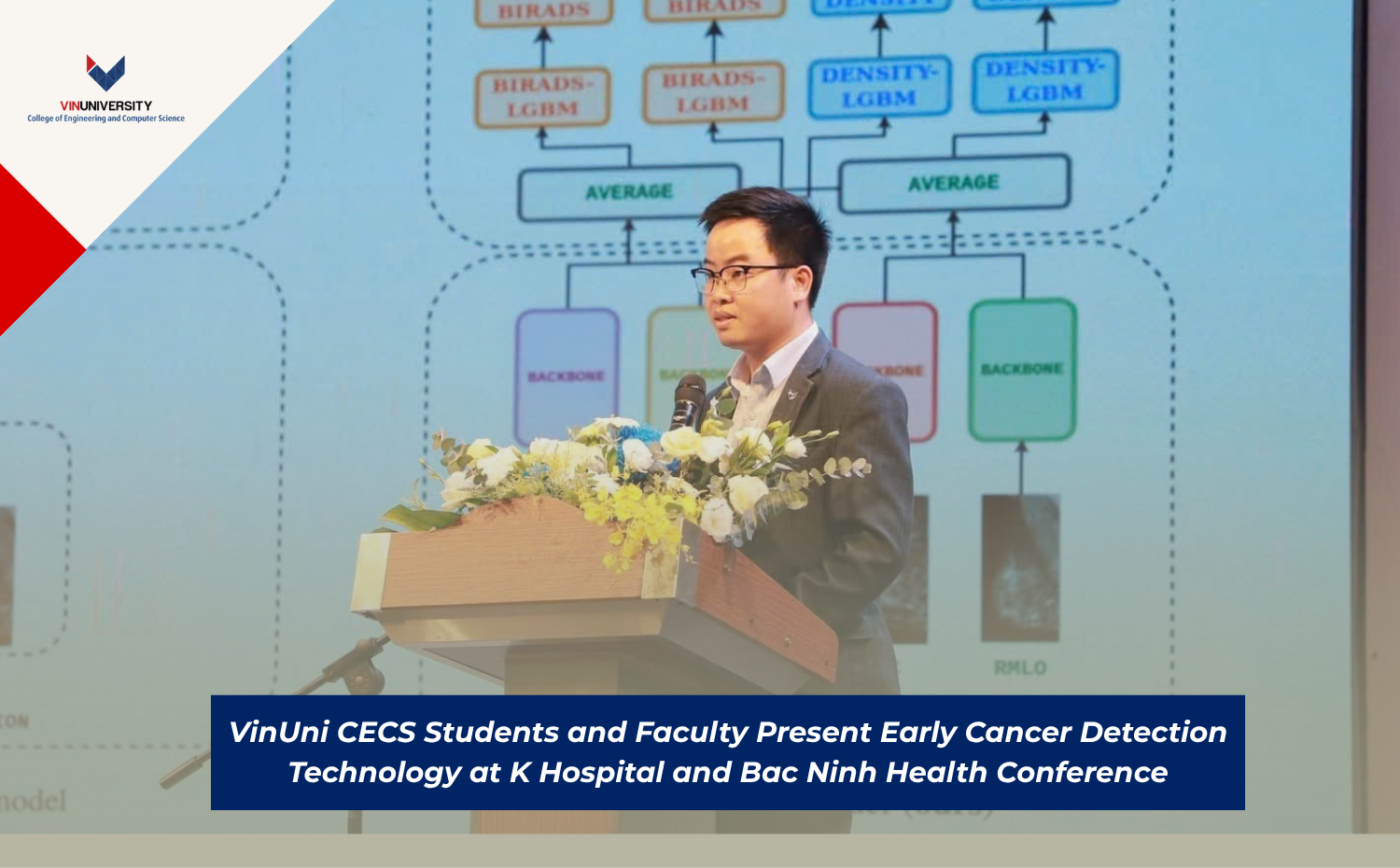
![[Recap] CECS Spring 2025 Townhall Highlights](https://cecs.vinuni.edu.vn/wp-content/uploads/sites/5/2025/05/CECS-FB-Photo-for-content-1500-x-930-px-5.png)
